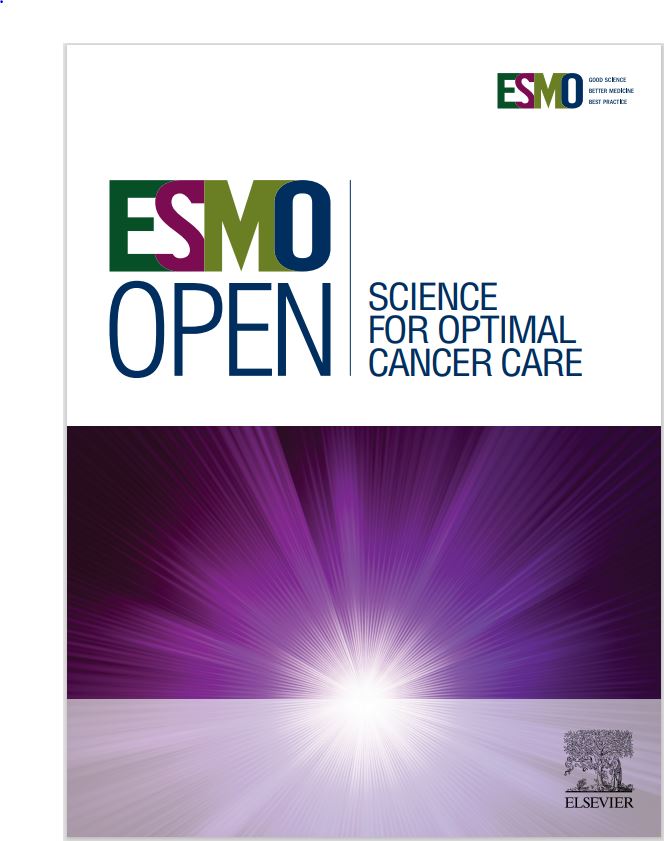Evolving therapeutic landscape of advanced biliary tract cancer: from chemotherapy to molecular targets
IF 7.1
2区 医学
Q1 ONCOLOGY
引用次数: 0
Abstract
Biliary tract cancer, the second most common type of liver cancer, remains a therapeutic challenge due to its late diagnosis and poor prognosis. In recent years, it has become evident that classical chemotherapy might not be the optimal treatment for patients with biliary tract cancer, especially after failure of first-line therapy. Finding new treatment options and strategies to improve the survival of these patients is therefore crucial. With the rise and increasing availability of genetic testing in patients with tumor, novel treatment approaches targeting specific genetic alterations have recently been proposed and have demonstrated their safety and efficacy in numerous clinical trials. In this review, we will first consider chemotherapy options and the new possibility of combining chemotherapy with immune checkpoint inhibitors in first-line treatment. We will then provide an overview of genomic alterations and their potential for targeted therapy especially in second-line therapy. In addition to the most common alterations such as isocitrate dehydrogenase 1 or 2 (IDH1/2) mutations, fibroblast growth factor receptor 2 (FGFR2) fusions, and alterations, we will also discuss less frequently encountered alterations such as BRAF V600E mutation and neurotrophic tyrosine kinase receptor gene (NTRK) fusion. We highlight the importance of molecular profiling in guiding therapeutic decisions and emphasize the need for continued research to optimize and expand targeted treatment strategies for this aggressive malignancy.
晚期胆道癌不断演变的治疗格局:从化疗到分子靶点。
胆道癌是第二种最常见的肝癌,由于其诊断晚、预后差,仍然是一个治疗难题。近年来,传统化疗显然不是胆道癌患者的最佳治疗方法,尤其是在一线治疗失败后。因此,寻找新的治疗方案和策略来提高这些患者的生存率至关重要。随着肿瘤患者基因检测的兴起和普及,针对特定基因改变的新型治疗方法最近也被提出,并在大量临床试验中证明了其安全性和有效性。在本综述中,我们将首先探讨化疗方案,以及在一线治疗中将化疗与免疫检查点抑制剂相结合的新可能性。然后,我们将概述基因组改变及其在靶向治疗(尤其是二线治疗)中的潜力。除了异柠檬酸脱氢酶1或2(IDH1/2)突变、成纤维细胞生长因子受体2(FGFR2)融合和改变等最常见的改变外,我们还将讨论BRAF V600E突变和神经营养酪氨酸激酶受体基因(NTRK)融合等不太常见的改变。我们强调了分子谱分析在指导治疗决策方面的重要性,并强调有必要继续开展研究,以优化和扩展针对这种侵袭性恶性肿瘤的靶向治疗策略。
本文章由计算机程序翻译,如有差异,请以英文原文为准。
求助全文
约1分钟内获得全文
求助全文
来源期刊

ESMO Open
Medicine-Oncology
CiteScore
11.70
自引率
2.70%
发文量
255
审稿时长
10 weeks
期刊介绍:
ESMO Open is the online-only, open access journal of the European Society for Medical Oncology (ESMO). It is a peer-reviewed publication dedicated to sharing high-quality medical research and educational materials from various fields of oncology. The journal specifically focuses on showcasing innovative clinical and translational cancer research.
ESMO Open aims to publish a wide range of research articles covering all aspects of oncology, including experimental studies, translational research, diagnostic advancements, and therapeutic approaches. The content of the journal includes original research articles, insightful reviews, thought-provoking editorials, and correspondence. Moreover, the journal warmly welcomes the submission of phase I trials and meta-analyses. It also showcases reviews from significant ESMO conferences and meetings, as well as publishes important position statements on behalf of ESMO.
Overall, ESMO Open offers a platform for scientists, clinicians, and researchers in the field of oncology to share their valuable insights and contribute to advancing the understanding and treatment of cancer. The journal serves as a source of up-to-date information and fosters collaboration within the oncology community.
 求助内容:
求助内容: 应助结果提醒方式:
应助结果提醒方式:


